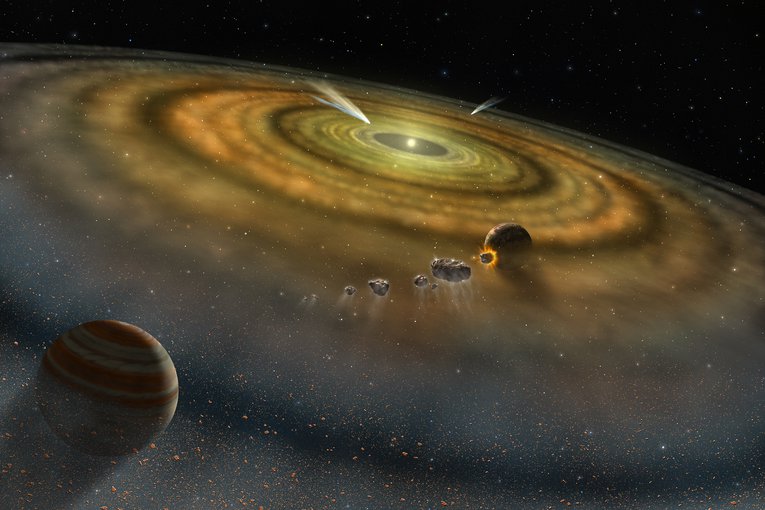
Nov. 21, 2023
Research Highlight
Meteorite Yields Clues about the Distribution of Aluminium-26 in the Early Solar Nebula

Artist's conception of the dust and gas surrounding a newly formed planetary system.Image credit: NASA.
Researchers supported in part by NASA have demonstrated that aluminium-26 (26Al) was heterogeneously distributed throughout the solar nebula.
26Al is a radionuclide of aluminium that acts as a heat source in early planetary melting and can also be used to measure time based on its rate of decay. However, to understand the role of 26Al in the evolution of the early Solar System, scientists must first determine whether or not the element was evenly distributed through the solar nebula.
In the new study, scientists examined the meteorite Erg Chech 002 to reveal that the 26Al content was higher than in other, similar meteorites. Ultimately, the results indicate that 26Al was distributed unevenly throughout the protoplanetary disk from which the Solar System formed.
The study, “Igneous meteorites suggest Aluminium-26 heterogeneity in the early Solar Nebula,” was published in Nature Communications.